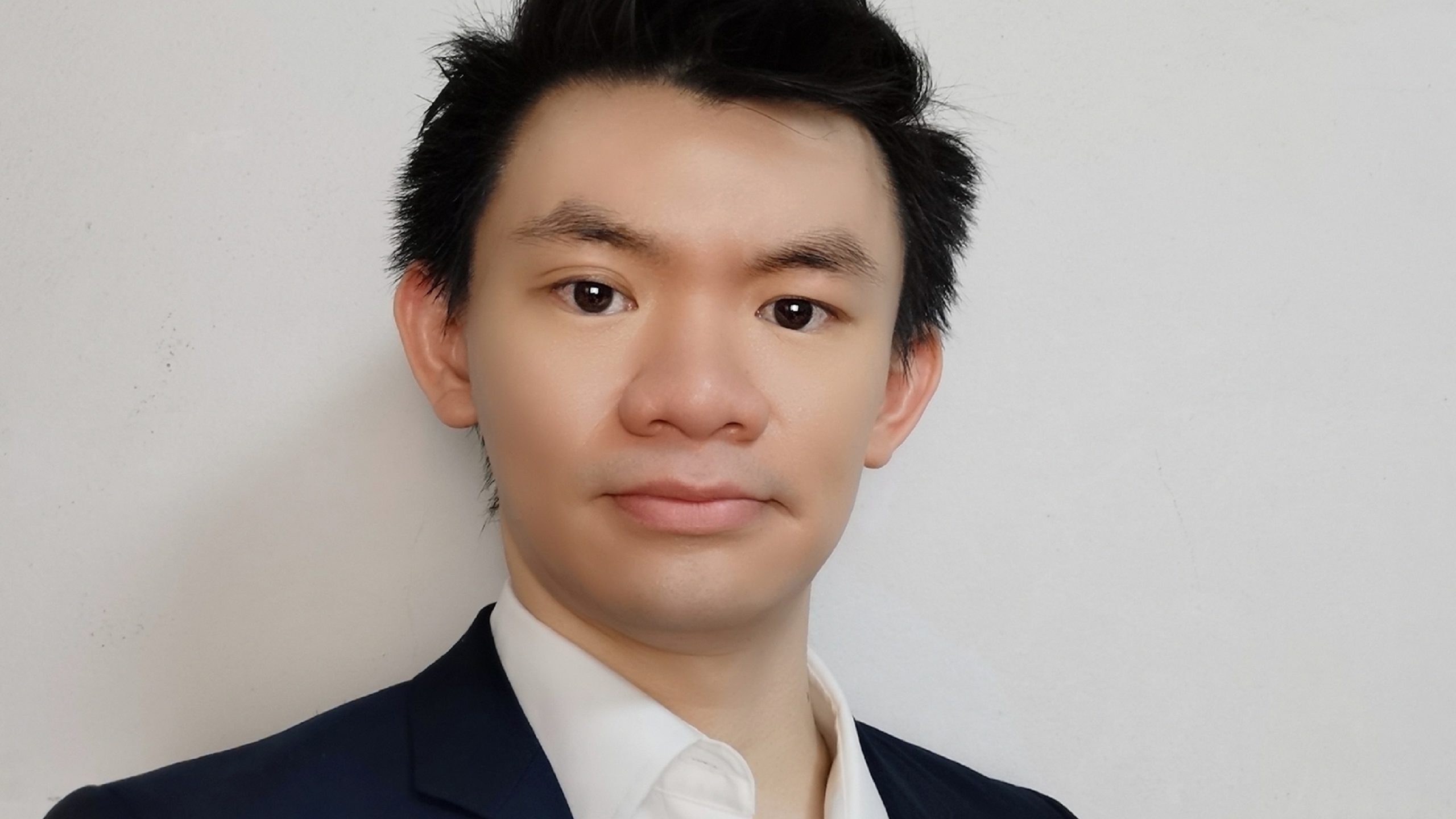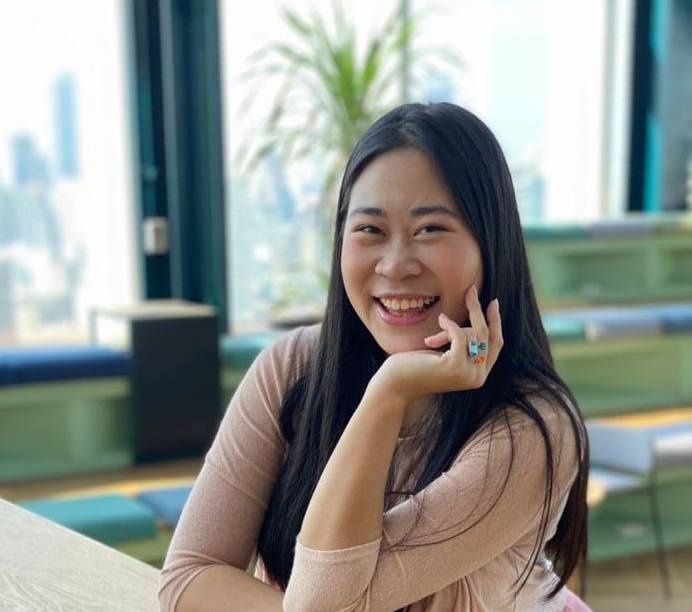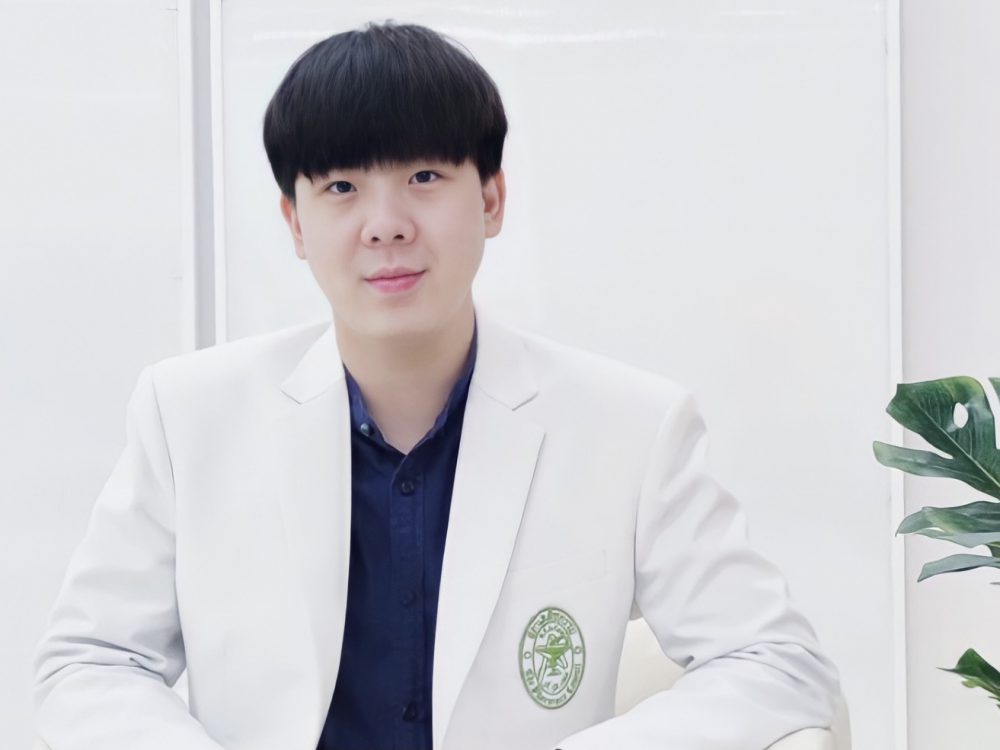Introduction
My name is Chanchai Apiwatsakulchai (Perm). I hold a degree from Bachelor of Science in Computer Science from Kasetsart University and a Master of Engineering from Chulalongkorn University. I worked in many roles from being an analyst and system developer, a technology consultant, a business strategy, management, and digital transformation consultant with leading organizations. Now I have shifted to work in HealthTech.
What do you do in tech?
Currently, I work with Good Doctor Technology (GDT) Thailand (Good Doctor Technology Thailand – GDTT) as a Strategic Accounts Manager. GDTT is a company providing telemedicine that uses technology as a method to deliver access to medical services. My current role is to manage clients and business partners that are interested in rolling out telemedicine for employees as their benefits and including finding collaboration opportunities with business partners.
First, it starts from identifying formats and service offerings that clients are interested in or would like to align with what GDTT has for service setup before launch. Second, it is to work with the leads from internal teams to drive the services for clients and business partners efficiently under the agreements aligned. Third, I am working to drive strategic goals for clients and business partners to realize business benefits from using the services and other collaborations that would provide business benefits. For example, I work with Human Resources departments from the organizations to drive the utilization of our services and how to effectively manage employee health and wellbeing. This also includes the collaborations and expansion of service offerings and service coverages with business partners.
What is your perspective on the HealthTech industry?
I am interested in technology and how technology can be applied in business. Now every company is already a technology company. Therefore, any company that is unable to apply technology in their business may then be disrupted.
In the healthcare industry, we use to rely on doctors and hospitals. However, technology has been taking a role in the industry. If we are talking about health management, technology has been used to track basic changes in your health, be an intermediary to access medical services, and supporting medical professionals, and providing useful information for decision making with the use of advanced technology.
I think HealthTech for Thai people is first to have more convenient access to medical services and to receive information without having to get to go to a hospital in any case.
Next, it is to bring in advanced technology to integrate with holistic and proactive health management approach. This is to drive changes from reactive health management approach where (for example) we take care of our health only when we are sick. In the future, we can use devices to track our health and use their data to assist in holistic health diagnosis. When we have more data collected, we can increase efficiency in getting a view on holistic health statuses, and we may even be able to better support research in medications and treatments.
What are your inspirations?
Personally, I like to do things that are challenging. I will be especially interested in what other people say they are unable to do. In the healthcare industry, we need to see why it has remained the same when it comes to service access challenges such as the challenges on why we do not have access to medicine and why we do not instantly have access to medical services. Coincidentally, GDTT has opened its business. After I am informed about its business, I felt it shares the same view as what I have always been wondering to be a part of. I have always thought of how to make people’s lives better where there is also the technology component that I am already interested in, along with how I am also introduced to the healthcare industry. This inspired me to be a part of the driving forces that will help push solutions for the healthcare access challenges to the point that technology can really make an impact in health management.
HealthTech and Telemedicine are still in the early stages in Thailand. What are the challenges in starting it compared to other industries?
Originally, from the healthcare perspective, we thought that it can only be managed by people without considering how technology can also come in handy. Now we know that we can apply technology to healthcare. The first challenge is how to build a correct and practical understanding of how technology can be applied in healthcare.
The second challenge is when you must do things with people, you need to be careful. At times, it is different from other industries where they can just apply technology into their processes right away and some issues can be looked over. But in the case of healthcare, it is important to reduce the risks that can occur from errors and in terms of acknowledging that bringing technology to integrate with medical practices, will it produce comparable quality and will it be better than the traditional practices. Moreover, in terms of the understanding of people, we must constantly develop both in the business sector and those who oversee the rules of how we can work together to combine technology effectively and safely with medical procedures.
Which part of your experience to pick up and adapt to what you are doing right now?
Actually, I have used everything I have so far gained throughout my professional life! Back when I started my career, I started with programming and then continued with looking over more in the business sides, from defining a business strategy to enhancing business processes and driving efficiencies. Now I must drive business results while also knowing the technology behind how things work.
HealthTech is still very new in Thailand, and we can say that GDT has been consistently bringing in some technology that fits the market context here. However, there will still need to be more adapting as well as updating the clients to understand the behind-the-scenes technology such as data management, access to information, or various features in the mobile app. For example, when working with a partner, I must have some general ideas on how certain technology works or may work. When there are issues, I can help observe and identify potential causes first, and then the issues will be forwarded to the tech team who has expertise in that. The second example is working with teams to formulate strategy and develop ecosystems and partners to support business operations, including process design in terms of how to come up with a working arrangement that will allow all parties to work together.
As a pioneer in the field of HealthTech, what would you say to those who are about to start something new?
It will not be easy to start or pioneer new things. If they were easy, people would have done them all. I would like to suggest that you look at the future picture of what you want to achieve. It will require you to keep trying and continue studying new information on what you are currently doing as well as the business of other aspects because often these innovations are not created only from new ideas and accomplishments, but from applying knowledge from other areas into what we try to develop. It is called learning, improving, and continually developing.
It is also important to give yourself time. When doing difficult things, you can sometimes feel tired and discouraged as favorable results may not show quickly. In this case, you must give yourself some time. However, at the same time, you need to stick to the goals you want to achieve and adjust your plan as necessary as well. Many people may think that keep going forward will never make you fail, and I believe to do so.
But at the same time, there will be some ups and downs during the process, and I bet every successful person has experienced this before. So, whoever is facing challenges and is constantly failing, try resting for a while then getting back up to keep trying so that we can achieve our goals in the long run.


